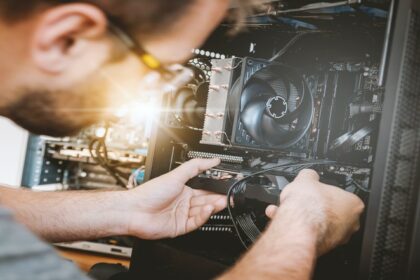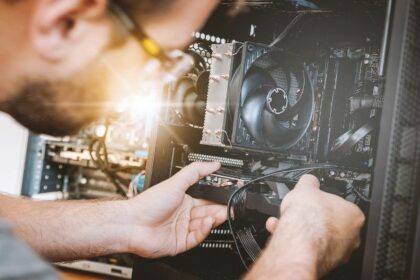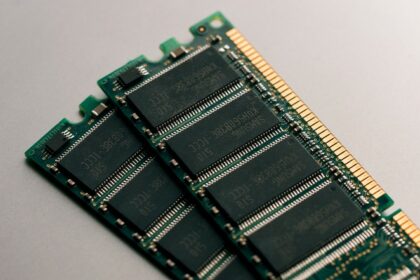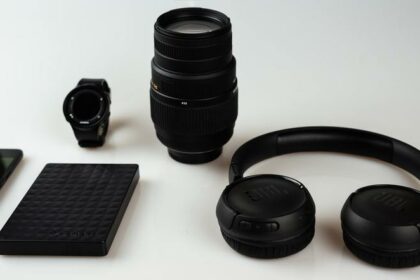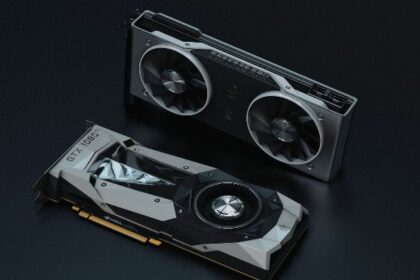A modular power supply is something that a lot of people, especially PC gamers, are likely to hear about quite a bit. While you may have heard the term being used, it is possible that you are not aware of what it means.
More importantly, it is important to know what a modular power supply is because if it has benefits over your current setup, then you might want to purchase one.
Even though modular power supplies are almost always better than their standard counterparts, they are also more expensive. As such, they are not the correct choice for everybody.
In this guide, we go through what is a modular power supply. We also explore its variations and whether or not purchasing a modular power supply is the right decision for you.
What Does a Modular Power Supply Do?
The simplest way to explain a modular power supply is that it has cables that can be attached and detached. A standard non-modular power supply comes with all of the cables fixed to the power supply, and any stray cables must be left inside the casing.
On a modular supply, however, you can remove any cable that will not be plugged into the motherboard or another part of the PC. For example, you have decided that your PC will not be running too hot and you will only be needing a small number of case fans. In this case, you will be able to remove any additional cables that may have been used for the case fans.
What is a Semi-Modular Power Supply
A semi-modular power supply is exactly what the name suggests. Instead of all of the cables being detachable or all of them being fixed, some of the cables can be detached while others are held in place.
Usually, the important cables that will be used by all PCs are the ones that are fixed to the power supply. In most semi-modular power supplies, you will find that the motherboard and the CPU cables are fixed, while the rest of the cables (such as SATA and PCIe) can be removed.
Advantages of a Modular Power Supply

As you may have guessed, there are numerous advantages of using a modular power supply. Let’s take a look at some of them.
Better Cable Management
It should go without saying that if you have fewer cables in your case, you will be able to better manage the cables. In fact, cable management is one of the primary concerns of people building their own PCs. Using a modular power supply is the easiest way to alleviate this problem.
Better Aesthetics
Using a modular power supply allows you to use third-party cables, many of whom are much better looking than the traditional cables found in a power supply. There are numerous stores that have a selection of third-party cables that you can purchase and then use with your power supply.
There are two things to remember here. The first is that before you purchase a modular power supply, you should make sure that you can find third-party cables for it. This is because not all cables will work with all power supplies. You should also only purchase the cables if they are high-quality and from reputable sources. Otherwise, you risk damaging your PSU and your system.
A Cooler System
Having fewer wires naturally means that you will have a PC that runs cooler. You would be surprised by how much of a difference a few stray cables can make.
Once you have installed all the case fans and removed all the unused cables from your modular power supply, the airflow will not be blocked by any additional cables. This will lead to a cooler system.
Better Quality (Usually)
Just to be clear, having a modular power supply does not mean that it is automatically of great quality. In fact, there are many non-modular PSUs that are as good as the component can get.
However, modular power supplies are designed with gamers, content creators, and professionals in mind. As such, you can generally expect them to be of good quality.
Easy Removal of the Power Supply
There will come a time when you will need to remove your PSU from the case. It could be due to a faulty PSU or general maintenance and cleaning. If you have a non-modular PSU, you will first have to disconnect all the cables, remove any ties or parts that you use for better cable management, and then remove the power supply.
With a modular power supply, all you need to do is unplug the cables from the PSU. Then, you can simply unscrew the power supply unit and remove it from the casing. The cables will still be attached to all the components on one end.
When you want to put the PSU back in, simply screw it into its slot and reattach the cables. You can also upgrade the PSU this way, provided the cables are compatible with both of the power supplies.
Save Space
If you are someone who has a smaller-sized case, having extra cables in your casing could be taking up a significant amount of additional space. Of course, this will not only make it difficult to fit all the components in but also significantly block the airflow.
With a modular power supply, you can simply remove the excess cables to save space in your rig.
Disadvantages of a Modular Power Supply

While modular power supplies are generally considered to be great, they also have a few shortcomings. Let’s take a look!
Modular Power Supplies are Expensive
Modular power supplies generally tend to be a bit more expensive compared to their standard counterparts. This is because the design needs to be able to accommodate all the cable needs of everyone who purchases them.
If you are someone who is short on budget and wants to have some form of modularity with their power supply, we suggest opting for a semi-modular PSU. This way, you can enjoy many of the benefits of a modular PSU while also saving a little bit of cash.
You Must be Careful
While modular power supplies are usually of a higher quality compared to standard ones, the cables can be a problem. It is absolutely important that you make sure each and every cable on your PSU is plugged in properly. Otherwise, you risk damaging the system.
Power supplies can be responsible for a lot of issues with your PC. For example, they are a common reason behind your PC shutting down while gaming. As such, you must be very careful when using a modular power supply and make sure everything is set up properly before you begin using your PC.
Should You Purchase a Modular Power Supply?
While having a modular power supply is almost always better than a non-modular one, not everyone needs it. As such, you should go through the advantages and see if they apply to you before you purchase one.
Generally, you should opt for a modular power supply if you are planning to upgrade your PC at a later date, if you have a lot of components on your motherboard, or if you push your PC to the limit and want the cable management possible.
In almost every other case, a non-modular or semi-modular power supply will be more than sufficient for your needs.


